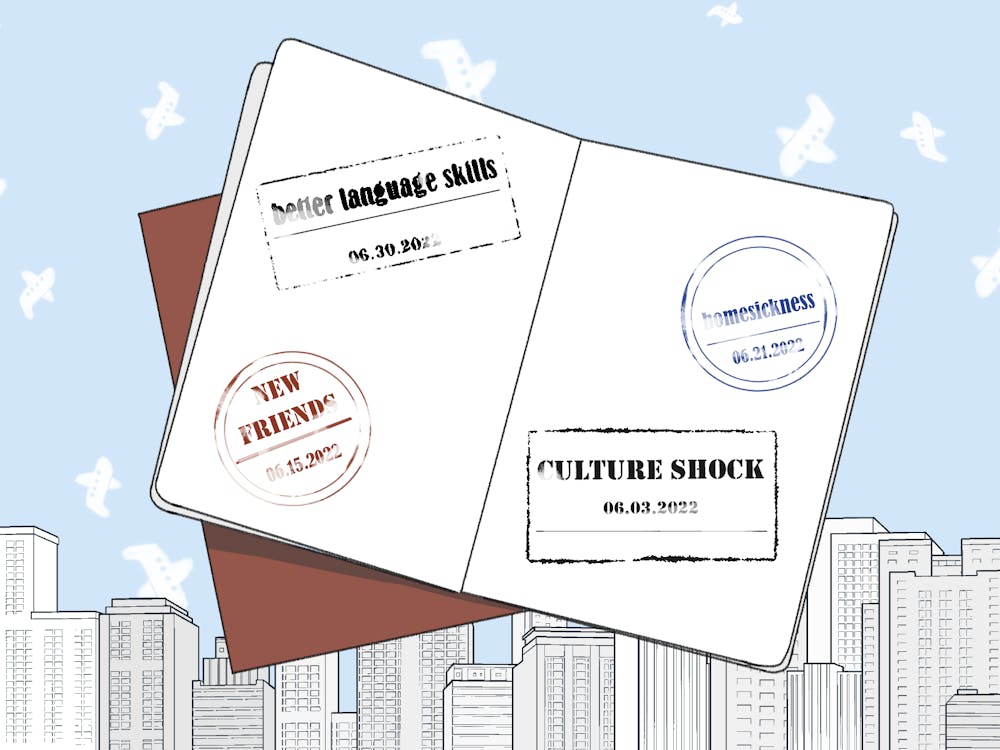Ever since The Cheetah Girls 2 premiered on Disney Channel in 2006, I’ve wanted to go to Spain. Granted, I was 4 years old. I don’t think I even grasped what countries were then. Yet, I knew I wanted to see the streets of Barcelona where the girl group sang “Strut.”
Though I haven’t been to Barcelona yet, I did spend a month studying abroad in Salamanca, Spain this past summer. While it was an unforgettable and transformative experience, there were more than a few bumps in the road. My word of caution to future study abroad students: enter the experience with an open mind and lots of patience.
Before you go abroad, prepare yourself for culture shock. When I first arrived in Spain — jet-lagged but somewhat bright-eyed — my host mom took me to the Plaza Mayor, the city square which serves as the heart of Salamanca. I sat with some of the other students in my program at a cafe in the plaza, surrounded by gorgeous Baroque architecture, excited for what the rest of my month might hold.
Pretty soon, however, the symptoms of culture shock began to set in. My host parents didn’t understand English, so any questions I had about directions or SIM cards had to be in Spanish. By the end of the trip, it had done wonders for my language skills.
Initially, however, it just highlighted my rusty vocabulary. When my host mom asked me about my breakfast preferences and career goals, I struggled to find the words for soy milk and OB-GYN.
But as I got into the habit of using Spanish all day every day, I was able to have conversations with my host mom about more complex issues, like universal health care and Spaniards’ income tax donations to the Catholic Church. I noticed it didn’t take as long for me to form sentences or search for the correct conjugation.
I was even able to communicate with two of my housemates, who were study abroad students from Italy, in Spanish — my stiff American accent contrasting with their rich Italian ones. Over breakfast, we talked about the vocational high school they attended in Italy and the crush one of them had on a local waiter.
When you’re researching study abroad programs, don’t be afraid to ask “dumb” questions. I was under the impression that I would be taking classes at the University of Salamanca, and I didn’t think to clarify this assumption.
My classes were actually based at Lingua Globe, a tiny school in what was effectively a Salamanca strip mall. My Medical Spanish class was made up of three students in total. While this made for a cozy class environment, it was a huge departure from what I had imagined.
If you have any kind of dietary restrictions, keep the local cuisine in mind when choosing a study abroad destination.
The Spanish love their meat. The country’s meat consumption is the highest in the European Union. I don’t eat red meat, so I didn’t indulge in “jamón Ibérico” (Iberian ham) or “albondigas” (Spanish meatballs), but I was always able to find seafood or poultry items on restaurant menus. Yet, for the few students on my trip who didn’t eat any meat at all, the food options were paltry.
Though we submitted our dietary restrictions before going to Spain, our program would sometimes make group reservations at restaurants where the only vegetarian options were soup and salad. And keep in mind, on weekend excursions we would be trekking from tourist attraction to tourist attraction, walking around 10 miles a day. We needed more than romaine lettuce to sustain ourselves.
Our homestay experiences also varied wildly. While some host parents were incredibly kind and accommodating, a group of girls in my program had a host mom who would forget to put out breakfast and let her unruly 5-year-old hit them.
Another recommendation I have for those studying abroad is to expect the unexpected. Less than a week after arriving in Salamanca, the morning after my program toured the city’s famed cathedrals, I woke up with a 103-degree fever.
I texted the Hopkins professor on the trip and, two hours later, the program director showed up at my host family’s apartment. She found me groggy and confused in my pajamas and swabbed my nose with a long Q-tip. The COVID-19 rapid test immediately came back positive. After more than two years of avoiding the virus, I finally got it in Spain.
While sick, I longed for my comfy bed and my mom’s homemade chicken noodle soup. But even when I emerged from isolation and re-entered the real world, I still felt an ache for home. I yearned for the American luxuries I had previously taken for granted: free restaurant tap water, McDonald’s bathrooms you don’t need a code to unlock, iced coffee and most of all, air conditioning.
During my second week in Spain, the country was struck by a heat wave, the earliest it had experienced in 40 years. The lack of air conditioning, common throughout European homes, had me taking cold showers before bed just to stay comfortable. While I ate dinner, my host mom would turn on the TV to news footage of wildfires raging across the north.
After the first two weeks, once the surprises wound down, I started to develop a soft spot for Spain. I gained a new sense of independence, navigating the streets of Salamanca on my own and conversing with locals in Spanish. I discovered a love for “tostas con queso de cabra” (toasts with goat cheese). I became friends with several of the people in my program, and we’ve since reunited in Baltimore.
While my study abroad experience wasn’t perfect, I don’t regret it in the slightest. I entered my junior year of college more confident in my ability to navigate the world on my own. But before you have your own Cheetah Girls 2-themed summer, do your research and manage your expectations accordingly.
Abigail Tuschman is a junior from Fort Lauderdale, Fla. majoring in Writing Seminars. She is the Opinions Editor for The News-Letter.





